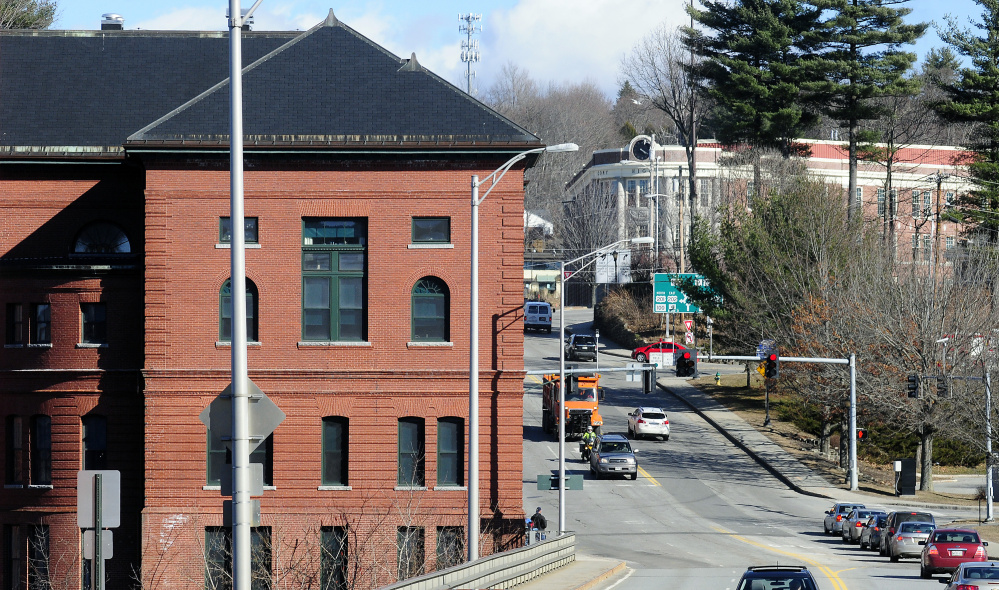AUGUSTA — City councilors who voted this week to seek AARP’s Age-Friendly Community designation said the city has made great strides to help create more housing for elderly residents.
Like much of the rest of Maine, however, the city needs to help provide better transportation options for elderly residents, they said.
They also believe those improvements could also help anyone, of any age, who has a hard time getting around without help.
“There are a lot of people who can’t walk, can’t ride a bike (in addition to people who don’t drive), and they are basically isolated in their homes,” at-large City Councilor Cecil Munson said. “Our community transportation network (Kennebec Valley Community Action Program), is fine, but it is not sufficient. Hopefully we’ll look further in that direction. Whenever I talk to people, they say ‘transportation, transportation, transportation.’ It’s very difficult.”
Mayor David Rollins said he wants a not-yet-created advisory committee to make transportation improvements for seniors a priority.
He specifically said he wants the committee to create a volunteer ride sharing program similar to one in Cumberland, which he read about on the town of Cumberland’s website. The program relies on volunteer drivers to give people rides, free of charge.
“They have a very interesting ride sharing program,” Rollins said of the Cumberland program. “We talk about lack of public transportation, and access. I’d like to challenge (the Age-Friendly advisory committee) to mirror that in our community, and have a volunteer ride sharing program, the elderly serving the elderly. I think that would be fantastic.”
City councilors voted unanimously Thursday to seek to join AARP’s Age-Friendly Community Network.
Lori Parham, state director of AARP in Maine, said to join the network, city officials should write a letter to AARP, then an advisory committee of citizens would be formed to begin the process of working to make improvements.
At-large Councilor Dale McCormick said she was especially excited about the potential of the program to help prompt improvements to transportation alternatives to make Augusta a more walkable city for people who don’t drive.
At-large Councilor Marci Alexander noted that improvements that make it easier for elderly residents and visitors to get around the city will do the same for everyone.
“The things that make it easier for the elderly also make it easy for people with strollers and small children,” she said. “So it’s really going to help the city across the board, not just that one population.”
Ward 3 Councilor Patrick Paradis said the city already has seen an increase in housing for the elderly in Augusta, with the opening of John Marvin Towers on Townsend Street, new senior housing in the former Cony flatiron building and renovations to Hodgkins Middle School for additional senior housing.
“That fills a vital need,” Paradis said. Providing “safe, secure, decent places to live in for our elderly, who are on fixed incomes, is, to me, one of the most important things we’ve done as a city council.”
Maine communities that already are members of AARP’s Age-Friendly Communities Network in Maine are Bethel, Bowdoinham, Ellsworth, Kennebunk, Paris and Portland.
Augusta’s age-friendliness, as rated by AARP’s Livability Index, is fairly average. The city’s “livability score” according to the online index, which provides scores for communities across the country, is 58, out of possible best score of 100. Communities are scored by comparing them to one another, so the average community gets a score of 50, with above-average communities scoring higher and below-average scoring lower.
Other Maine municipalities, and their scores, include: Hallowell, 56; Portland, 62; Richmond, 57; Gardiner 57; Waterville, 58, and Winthrop, 56.
Augusta did well in its more-specific rankings for its environment, at 71, and civic and social involvement and engagement, at 74.
It scored below average in neighborhood access to “life, work and play” locations, at 46; transportation, which factors in local public transportation availability, congestion and safety, at 49; and health, which includes access to, and quality of, health care, and local healthy behaviors, at 49.
Augusta scored a somewhat above-average score of 59 for housing affordability and access.
Keith Edwards — 621-5647
Twitter: @kedwardskj
Send questions/comments to the editors.




Comments are no longer available on this story